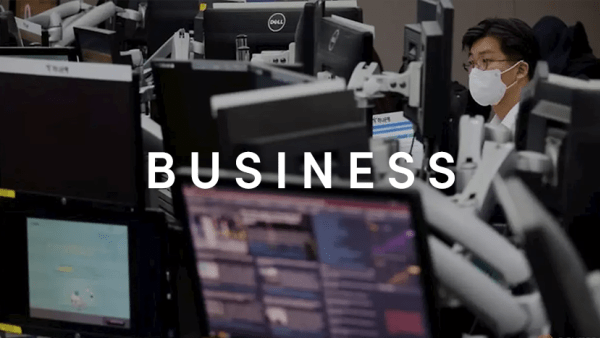Business
Texas Instruments Reports Demand Slowdown Following Tariff Spike

Texas Instruments (TI) has reported a notable slowdown in demand following a surge in April, which was largely driven by customers accelerating orders ahead of the “Liberation Day” tariff announcement. The company’s shares dropped nearly 4 percent on Thursday, reflecting investor concerns over future performance.
Speaking at the Citi Global TMT Conference, TI’s Chief Financial Officer, Rafael Lizardi, explained that the strength observed from January to April was partially attributed to market dynamics influenced by tariffs ahead of President Donald Trump‘s tariff announcement on April 2, 2023. “But then things did slow down after April, or at least didn’t grow as they normally would have,” Lizardi noted.
Government Equity Stake Discussions Unconfirmed
Lizardi further clarified that Texas Instruments has neither been approached regarding nor discussed any potential U.S. government equity stake as a condition for receiving incentives under the CHIPS Act. This statement comes in light of the Trump administration’s controversial decision to acquire a 9.9 percent equity stake in Intel, which has raised concerns about government involvement in the private sector. “Nothing along those lines has been discussed or proposed. We have not been approached on any of that,” Lizardi affirmed.
The agreement with the U.S. government, initially established under the Biden administration and subsequently revised over the past six months, has resulted in only minor adjustments according to Lizardi. “There were little things they wanted to change, but nothing along the lines of what you’re hearing from companies like Intel,” he added.
Funding and Financial Outlook
The U.S. Commerce Department has allocated up to $1.6 billion in funding for TI under the CHIPS and Science Act. Despite this financial backing, Lizardi indicated that the company’s free cash flow has been affected by increased capital expenditures in recent years. Although share repurchases have continued, the pace has slowed due to prioritizing capital expenditure.
In July, TI’s quarterly profit forecast failed to meet investor expectations, as it indicated weaker-than-anticipated demand for its analog chips from various customers. Nonetheless, the company remains optimistic, stating that four of its five end markets are on the path to recovery. The automotive sector, however, continues to face challenges due to a sluggish rebound in demand and ongoing economic uncertainty.
-

 World5 months ago
World5 months agoSouth Korea’s Foreign Minister Cho Hyun to Visit China This Week
-

 Business5 months ago
Business5 months agoStarling Bank Plans Secondary Share Sale, Targeting $5.4 Billion Valuation
-

 Top Stories5 months ago
Top Stories5 months agoMunsang College Celebrates 100 Years with Grand Ceremony
-

 World5 months ago
World5 months agoPAS Aims to Expand Parliamentary Influence in Upcoming Election
-

 Business7 months ago
Business7 months agoKenvue Dismisses CEO Thibaut Mongon as Strategic Review Advances
-

 Lifestyle6 months ago
Lifestyle6 months agoHumanism Camp Engages 250 Youths in Summer Fest 2025
-

 Sports6 months ago
Sports6 months agoDe Minaur Triumphs at Washington Open After Thrilling Comeback
-

 Sports7 months ago
Sports7 months agoTupou and Daugunu Join First Nations Squad for Lions Clash
-

 Top Stories7 months ago
Top Stories7 months agoColombian Senator Miguel Uribe Shows Signs of Recovery After Attack
-

 World7 months ago
World7 months agoASEAN Gears Up for Historic Joint Meeting of Foreign and Economic Ministers
-

 Health6 months ago
Health6 months agoNew Study Challenges Assumptions About Aging and Inflammation
-

 Business7 months ago
Business7 months agoOil Prices Surge Following New EU Sanctions on Russia









